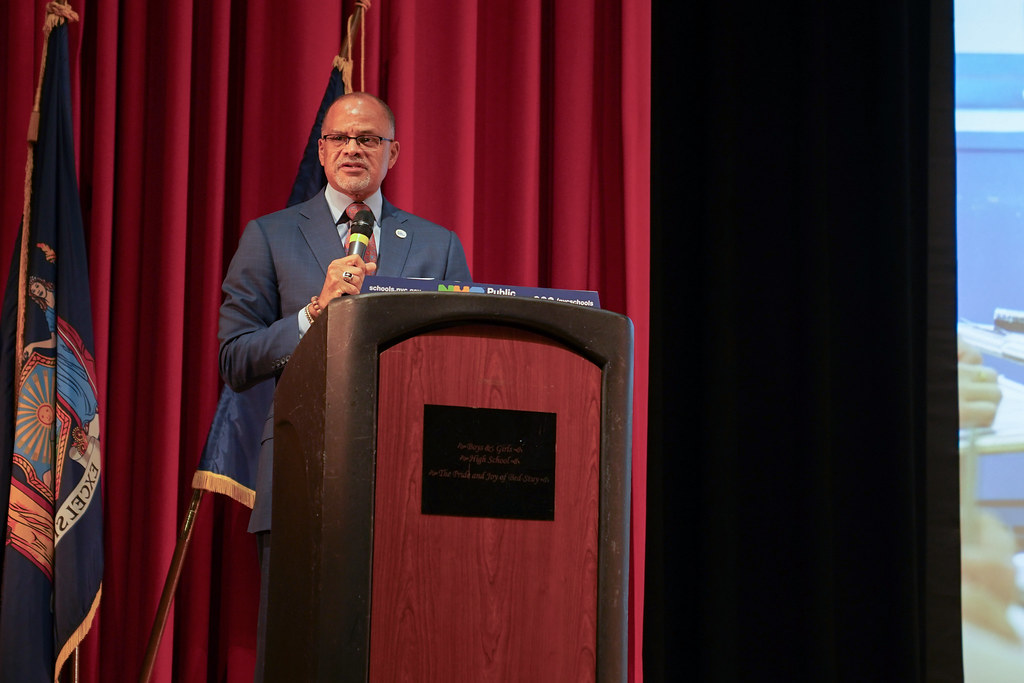In a world marked by loss, trauma, and the challenges of everyday life, the importance of social-emotional learning has never been more evident. As part of the New York Life Foundation’s commitment to increasing awareness, access, and resources for childhood bereavement, I had the privilege of attending the New York Life Foundation Day of Learning Conference. This gathering brought together a diverse group of educational professionals, nonprofit leaders, and mental health agency collaborators, all united by a common goal: to explore the theme of grief support for youth, families, and instructional practitioners.
The keynote speaker, Chancellor David Banks, set the tone for the event by providing an overview of New York City Public Schools’ dedication to helping youth cope with loss and trauma.
“We are committed to the emotional and mental health of our kids,” said Chancellor Banks. To this end, his vision involves creating a safe space for young individuals to engage in daily breathing and mindfulness exercises, equipping educators with the language and professional development needed to provide grief support, and launching a telehealth hotline to offer additional mental and emotional support to about 571 high schools across our city.
The Childhood Bereavement Estimation Model, published by Judi’s House, found that 1 in 12 children will experience the death of a close family member by age 18, with that same statistic arising from 1 in 15 just five years ago. The rising number of tragedies, coupled with the challenges of our post-pandemic world, underscores the urgent need for a community-wide effort to create effective support systems for our youth.
The conference also underscored the significance of fostering relationships and community partnerships. Nicole Barnes, representing the Park Nicollett Foundation, urged us not to let our youth and schools process grief alone. She noted that we are in a crisis of loneliness, a sentiment echoed by U.S. Surgeon General Dr. Vivek Murthy back in May. Calling it an “underappreciated public health crisis that has harmed individual and societal health,” the Surgeon General has started to roll out a national plan to address loneliness.
According to The State of Grief Report: The Changing Nature of Grief published by the New York Life Foundation in 2022, “Youth who feel like they can discuss their feelings are better able to handle losses and challenges.” However, as a community we need to build systems that support educators and adults to effectively build this type of resilience.
As we think of our work here at ExpandED Schools, it’s evident that our efforts align with the work of other organizations tackling this significant challenge. We are currently providing professional development around topics that address youth trauma. Previously, we have facilitated sessions on Grief Support Management and How to Provide Empathetic Language to School Communities in Grief to Out-of-School Time line staff and directors. We also included grief resources within our SEL Hub on How to Talk to Children, What not to Say and Grieving Process: Coping Methods. We are looking to build on these resources and be more of a support to our partners in the field.
The New York Life Foundation Day of Learning Conference shed light on the pressing need for social-emotional learning and grief support in our schools. It serves as a call to action, urging us to come together, create strong support networks, and seek long-term solutions to the challenges faced by our youth. In short, the significance of our work has never been greater, and it is urgent that programs like ours continue to reach more students and educators.



